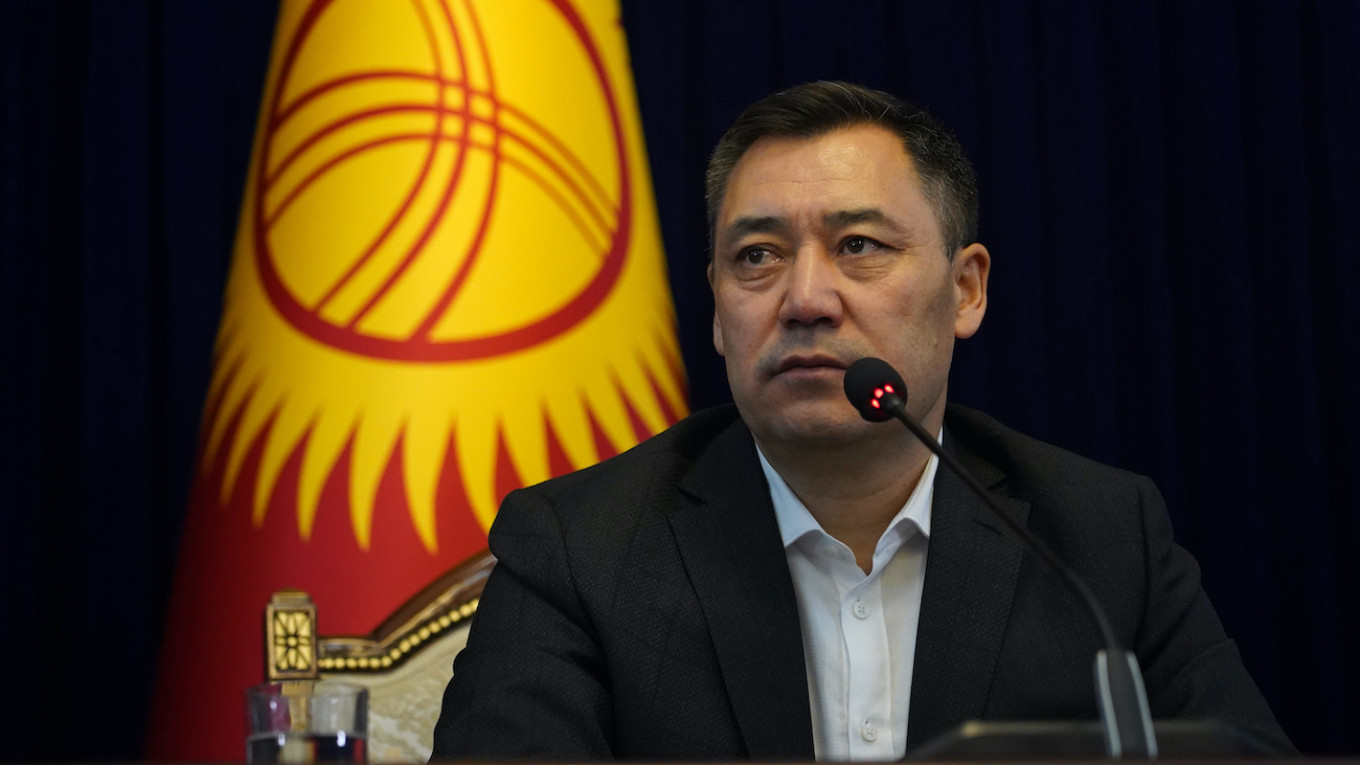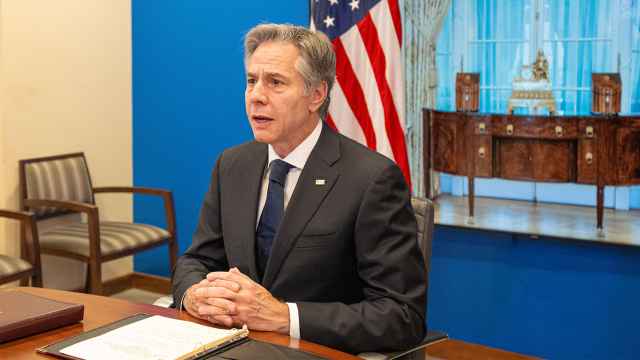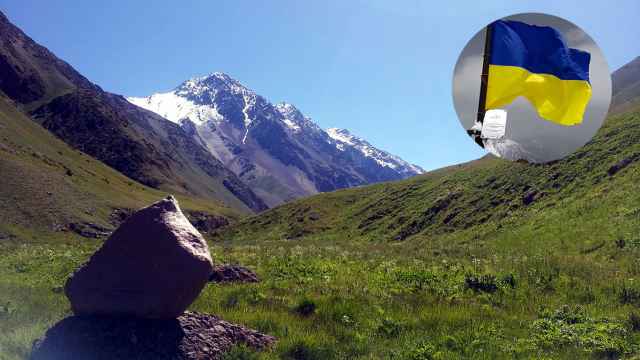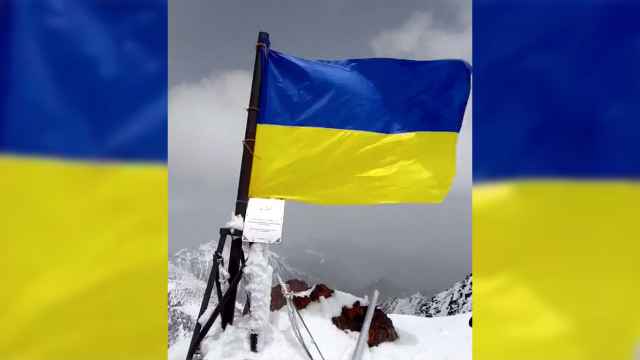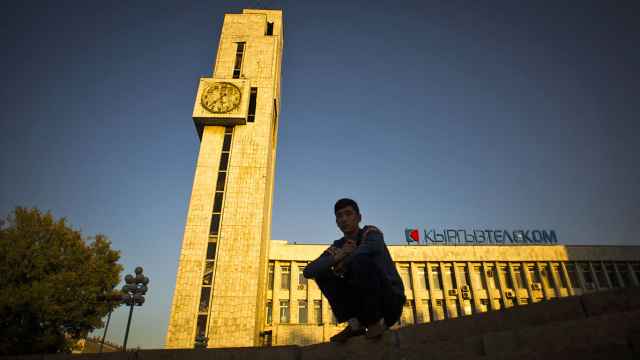Kyrgyzstan's new prime minister Sadyr Japarov claimed presidential powers on Thursday after the Central Asian country's head of state Sooronbay Jeenbekov resigned amid a post-election crisis.
"The powers of the president and the prime minister have been transferred to me," Sadyr Japarov told cheering supporters on Thursday, after Jeenbekov resigned and the parliament speaker refused to become acting president.
"I congratulate you on victory. Today everything fell into place," he told supporters outside the prime minister's offices.
Protests erupted after October 4 parliamentary elections were won by parties loyal to Jeenbekov, with opponents disputing the results over alleged vote-buying.
The vote was later annulled but this did not quell the clashes, in which more than 1,200 people were injured and one killed.
After trying to calm the crisis by confirming Japarov in his role only Wednesday, Jeenbekov has now became the third Kyrgyz leader to resign over political unrest since 2005.
He said he was stepping down to avoid bloodshed, as hundreds of protesters loyal to Japarov rallied close to the state residence calling for his resignation.
"I do not want to go down in the history of Kyrgyzstan as a president who allowed bloodshed and shooting on its people. I have taken the decision to resign," Jeenbekov said in a statement released by his office.
The president had previously pledged to resign after overseeing fresh parliamentary elections, but Japarov insisted that he step down without delay.
Jeenbekov called on Japarov and other politicians "to withdraw their supporters from the capital of the country so the people of Bishkek (can) return to a peaceful life."
Post-vote clashes
Populist figurehead Japarov was among prominent figures sprung from jail during the unrest.
He was serving time for hostage-taking and has been suspected of ties to organized crime, prompting a rally last week.
But he has denied the links and said that his 2017 arrest was the result of a "political order".
Since his release and confirmation as prime minister, his supporters have pushed for him to claim the presidency - and sometimes been accused of violence and intimidation.
"People are rejoicing (at Jeenbekov's resignation)," one supporter, Zhanat Akmatova, told AFP, adding that parliament is "in his way".
Once the body is dissolved, "(the people) want Sadyr (Japarov) to take it all upon himself and begin working," she said.
Parliament was set to meet on Friday to discuss Jeenbekov's resignation.
With the body's mandate expiring, speaker Kanat Isayev told Kyrgyz news website 24.kg that he had "no moral right" to take up the presidency as called for under the constitution - leaving Japarov next in line as PM.
"The political crisis isn't over," Azim Azimov, a political commentator, told AFP. "We have just completed one phase of the crisis and the next phase is upon us."
"It seems the resignation of Sooronbay Jeenbekov was not completely voluntary," he added.
Azimov also pointed out that Russia and the West had thrown their weight behind Jeenbekov since the unrest began.
Third crisis in Russia's neighborhood
Kyrgyzstan, a landlocked republic of 6.5 million people, has been dogged by political volatility for much of the three decades since it became independent from the Soviet Union in 1991.
The chaos has worried ally Russia, coming as post-election protests rock ex-Soviet Belarus and clashes persist over the breakaway Nagorno-Karabakh region of Azerbaijan.
In a phone call Thursday, Russian foreign minister Sergei Lavrov told his new Kyrgyz counterpart Ruslan Kazakbayev of Moscow's "concern about the development of the internal political situation" and readiness to assist "legitimate state organs" seeking stability, a Russian foreign ministry statement said.
A Message from The Moscow Times:
Dear readers,
We are facing unprecedented challenges. Russia's Prosecutor General's Office has designated The Moscow Times as an "undesirable" organization, criminalizing our work and putting our staff at risk of prosecution. This follows our earlier unjust labeling as a "foreign agent."
These actions are direct attempts to silence independent journalism in Russia. The authorities claim our work "discredits the decisions of the Russian leadership." We see things differently: we strive to provide accurate, unbiased reporting on Russia.
We, the journalists of The Moscow Times, refuse to be silenced. But to continue our work, we need your help.
Your support, no matter how small, makes a world of difference. If you can, please support us monthly starting from just $2. It's quick to set up, and every contribution makes a significant impact.
By supporting The Moscow Times, you're defending open, independent journalism in the face of repression. Thank you for standing with us.
Remind me later.


